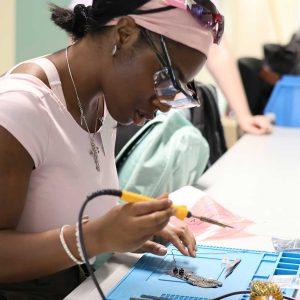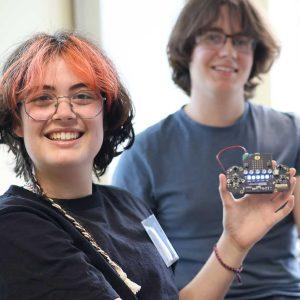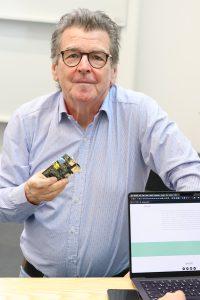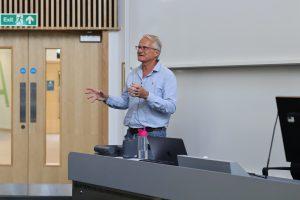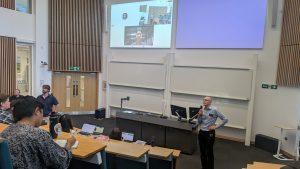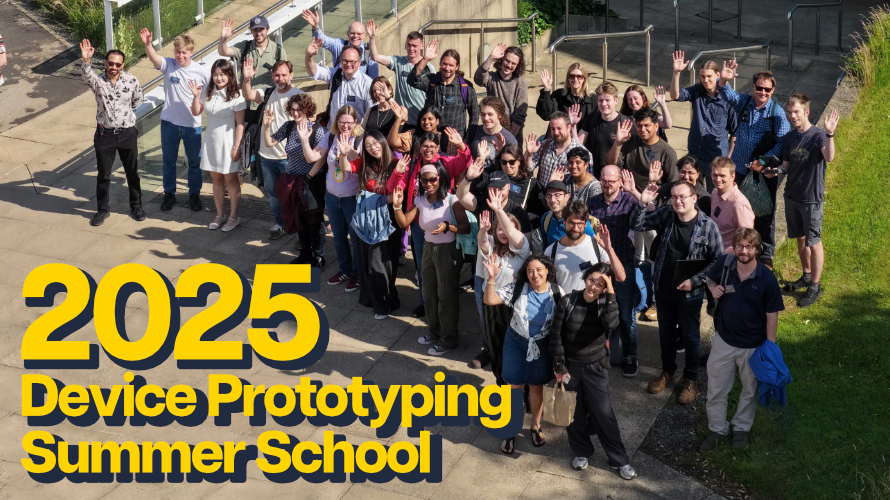
Following on from last year’s success, the second Device Prototyping Summer School, organised by the pro2 network+ and the Lancaster University Devices Lab, took place from the 15th to the 18th of July 2025. As many as forty delegates attended representing a wide range of backgrounds including entrepreneurs, researchers, and makers, as well as a diverse number of nationalities and organisations. Lancaster University once again played host to the event which was co-organised by Professor Steve Hodges and Dr Lorraine Underwood.
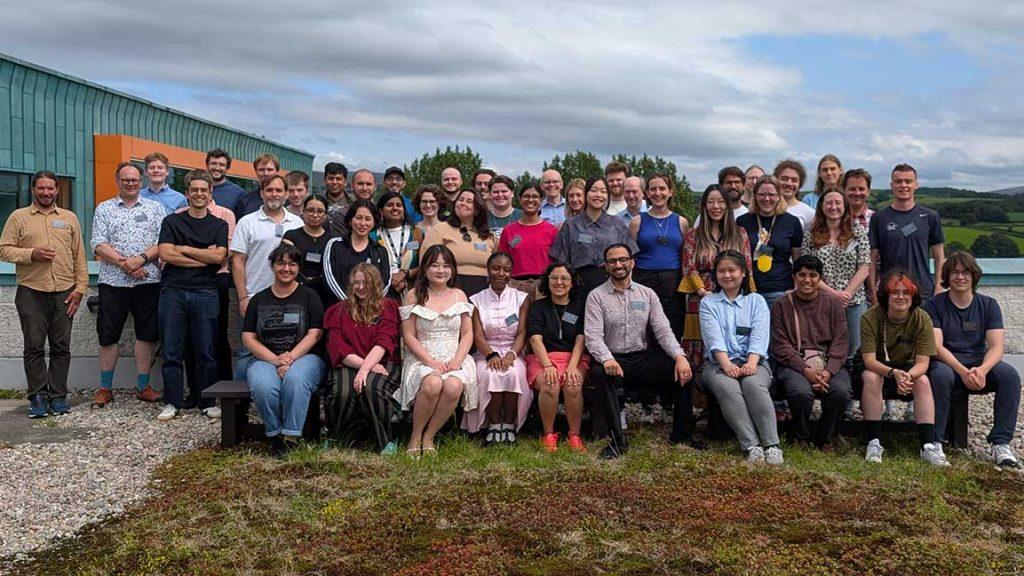
Much like 2024, the 2025 summer school boasted a packed agenda with lectures on topics like Printed Circuit Boards (PCBs), scaling prototypes to products, debugging, and deployment case studies. Practical tutorials included PCB design with KiCAD, surface mount assembly of PCBs, and 3D Computer Aided Design and were led by Aron Eggens, John Vidler, Kobi Hartley, and James Hahn of Lancaster University and Oliver Child of the University of Bristol. Graduates of last year’s summer school, including Kim Sauve, Oliver Child, and Jack Burnett, were invited back to present on how their prototypes had progressed since 2024.
There was a fantastic line-up of keynote speakers as well, including:
- Mandy Xiang, Project Manager with Bitcraze AB and former Seeed Studio production specialist, who presented on “Scaling Your Prototype”.
- Simon Monk, Author and Product Designer at Lancashire-based Monk Makes, who presented “Building an Electronics Manufacturing Business on a Shoestring”.
- Pete Lomas, Managing / Engineering Director at Norcott Technologies and co-founder of the Raspberry Pi Foundation, who presented “Raspberry Pi – Scale-up or Oblivion (The Challenge of Internet Success)”.
- Jason Alexander, Professor in Human-Computer Interaction at the University of Bath, who presented “Using Novel Materials for Device Production”.
- Steve Hodges, Distinguished Professor in Computing and Digital Systems at Lancaster University, who presented “Unlocking a Long Tail of Hardware”.
- Rory Clark, Research Associate at the University of Bristol, who presented “The pro2 network+”.
- Pete Lomas, Norcott Technologies
- Rory Clark, University of Bristol
- Simon Monk, Monk Makes
- Mandy Xiang, Bitcraze AB
Delegates were given the chance to showcase their own prototyping work with presentations and a prototype demo session. During the latter, attendees could view and discuss one another’s prototypes, opening up opportunities for feedback, networking, and potential future collaboration. There was ample time for socialising as well over the course of the three and a half days, with entertainment in the evenings including dinners, a pub quiz, and another first-rate gig by the School of Computing and Communication’s own band, “The Usuals”.
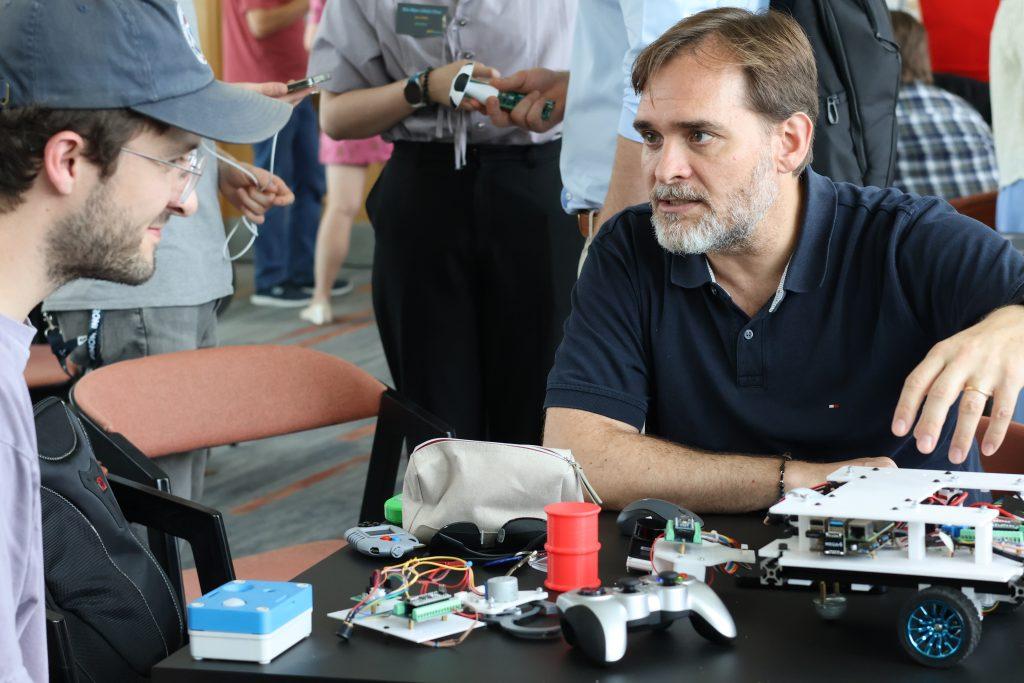
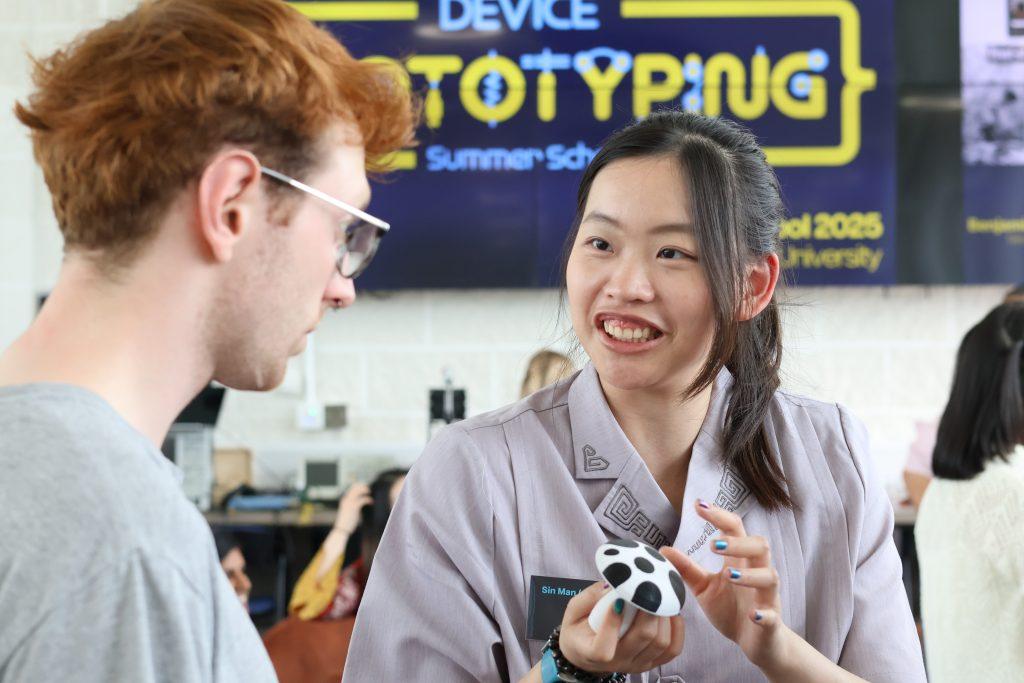
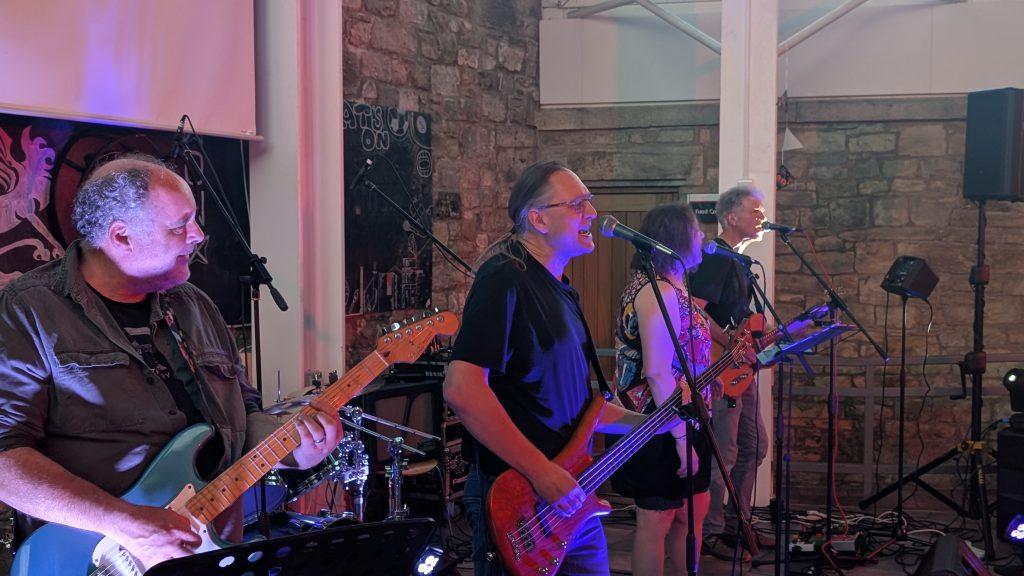
On the final day, winners of the 2025 Prize Competition were announced with fourteen awards of £200 given out and one grand prize of £1,000 going to Benjamin Seleb of the Georgia Institute of Technology for his prototype, the TinkerTrap.
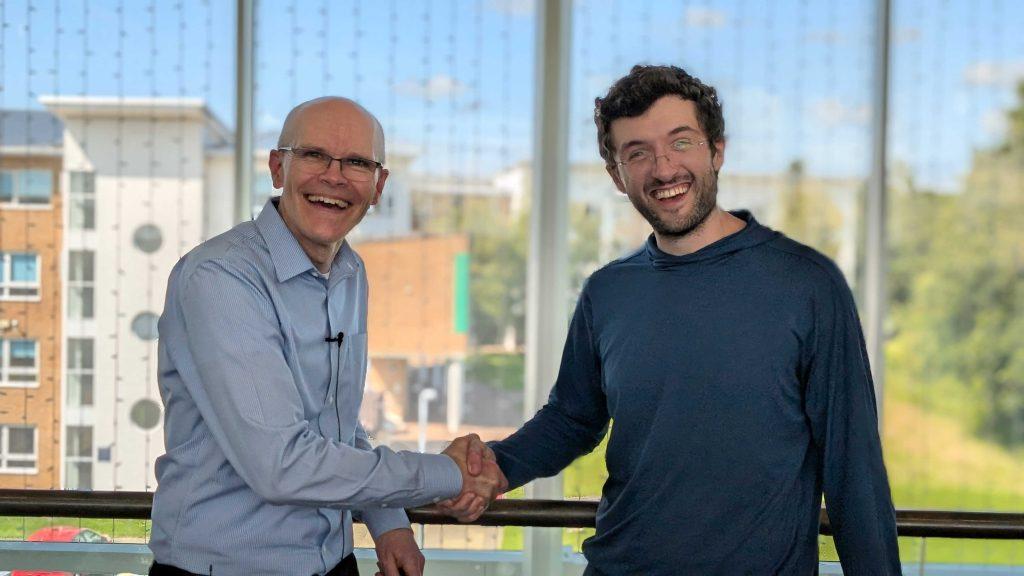
Benjamin Seleb, Georgia Institute of Technology
£200 award winners included:
- Jonathan Sanderson – Northumbria University
- Shyamli Suneesh- Lancaster University
- Emma Kathrine Derby Hansen – Malmo
- Arne-Wolf Lenssens – TUdelft
- Yang Gao – Oxford University
- Michael Langton – Imperial College London
- Hannah van Iterson – Eindhoven University of Technology
- Pranjal Jain – University of Swansea
- Chris Lowerson – Lancaster University
- Sebastian Prost – University of London
- Ulrike Kulzer – Saarland University
- Terry Fawden- University of Cambridge
- Manuel Heredia Ortiz – Hobbyist
- Seher Singh – University of Nottingham
Prizes were awarded on the basis of potential for impact with the funds supporting further development of device prototypes. You can learn more about the devices submitted to the 2025 summer school on our Showcase page.

Grand prize winner Benjamin said, “I had a great time at the summer school – getting introduced to free-to-use CAD and PCB tools, learning more about device production, and meeting other participants working on such a variety of devices. It was fun seeing how many of our projects fit into the “long tail of hardware” in such a supportive environment. Winning the grand prize was a big surprise, and it’s given me a boost of motivation to keep pushing TinkerTrap forward.”
“It was a pleasure to welcome so many innovative and enthusiastic attendees to the 2025 Device Prototyping Summer School at Lancaster University,” said co-organiser Professor Steve Hodges. “Over the course of the three and half days, we heard from expert speakers, engaged in hands-on tutorials and showcased delegates’ prototypes through presentations and a demo session. We’re already looking forward to building on this success at the 2026 summer school.”
Network manager Sarah Hughes added, “I’m really pleased with how well the summer school has gone at Lancaster this year. We had people in attendance from a mixture of places and professions, all of whom created a warm and engaging atmosphere. The pro² team were able to share their enthusiasm for device prototyping and production which I hope our delegates will carry with them on their device development journeys. We are already using the feedback we’ve received to start planning the Device Prototyping Summer School 2026.”



